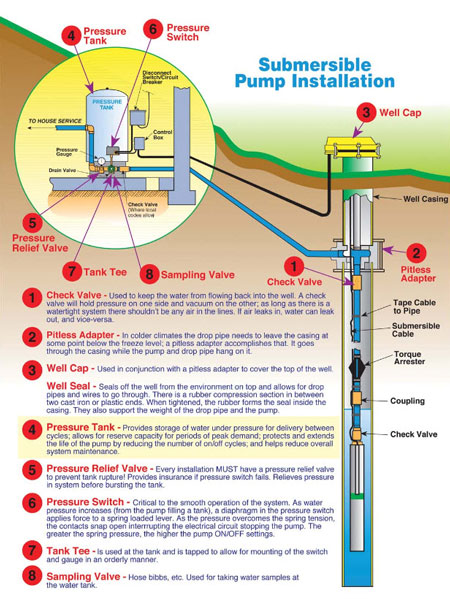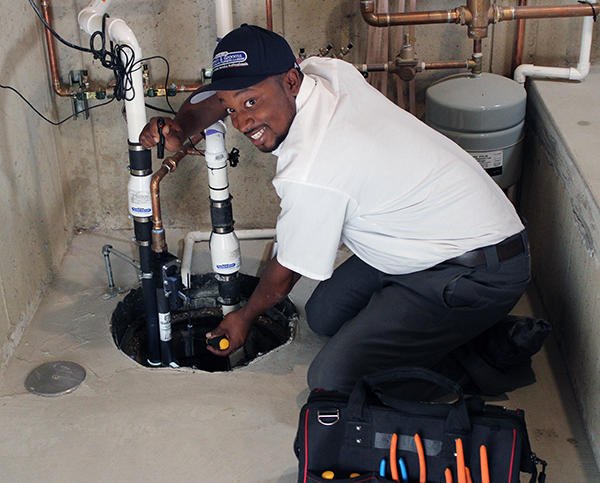Understanding the Trick Elements of Effective Water Filtering Systems

Significance of Water Filtering Equipment
Water filtration systems play a vital duty in ensuring access to clean and secure alcohol consumption water by successfully getting rid of contaminations and pollutants. These systems are crucial in dealing with the expanding problems over water quality and the potential health and wellness threats connected with consuming contaminated water. By making use of numerous filtration mechanisms such as reverse osmosis, activated carbon, and UV sanitation, water filtration systems can effectively get rid of unsafe substances like germs, viruses, hefty metals, and chemicals from the supply of water.
Furthermore, water purification systems help to boost the preference and smell of water by eliminating chlorine, debris, and other pollutants that can impact its high quality. Water Treatment. This improvement in water quality not just makes it much more palatable but likewise motivates people to consume alcohol an appropriate amount of water daily, promoting far better hydration and overall health and wellness
Types of Filtration Elements

Physical filters are designed to physically stress out pollutants from the water. These filters can be made from materials like ceramic, carbon, or perhaps sand, and they work by capturing particles larger than the filter's pores as water passes with.
Chemical filters use different chemical procedures to get rid of contaminants from the water. Examples consist of turned on carbon filters, which adsorb contaminations, and reverse osmosis membranes, which use pressure to separate contaminants from the water.
Biological filters utilize living organisms like germs or algae to break down raw material and pollutants in the water. These filters are commonly utilized in wastewater therapy plants or natural water purification systems.
Comprehending the different sorts of filtration components is important for choosing the most suitable water filtration system for specific filtration demands.
Feature of Sediment Filters
Sediment filters play an essential role in water filtration systems by effectively recording strong bits suspended in the water. These filters are generally the first line of protection in a purification system, eliminating larger fragments such as sand, silt, dust, and rust before the water relocates with finer filtering stages. By capturing these debris, the filters avoid them from reaching downstream elements, thus expanding the life expectancy and effectiveness of the whole system.
Neglecting this maintenance can lead to obstructing, reduced water flow, and endangered filtration effectiveness. Overall, sediment filters are crucial components that add dramatically to the performance of water purification systems.
Role of Turned On Carbon Filters
Playing site web a critical duty in water filtering systems, triggered carbon filters are critical in getting rid of contaminations and contaminants from the water supply. These filters are developed to adsorb and trap a vast array of contaminants, consisting of chlorine, volatile natural substances (VOCs), chemicals, and herbicides. The triggered carbon material has a big area, enabling the efficient trapping of pollutants through a procedure called adsorption. As water passes via the filter, the activated carbon draws in and holds onto the pollutants, ensuring that the water that comes out on the other side is cleaner and safer for consumption.
Turned on carbon filters are very efficient at enhancing the taste and smell of water by lowering chemicals that can impact its high quality. They are also qualified of getting rid of specific heavy steels like lead and mercury. In addition, these filters can assist avoid the buildup of microorganisms and algae in water, additional enhancing its total high quality. Due to their versatility and integrity, triggered carbon filters are a crucial element in ensuring that water is detoxified to the greatest standards prior to reaching consumers.
Recognizing Reverse Osmosis Solutions
Reverse osmosis systems are advanced water filtering systems that use an advanced procedure to remove pollutants and contaminations from drinking water. These systems function by using pressure to the water, requiring it via a semi-permeable membrane. This membrane works as a barrier, enabling just pure water molecules to travel through, while obstructing larger molecules such as minerals, chemicals, and various other impurities. Therefore, the water that appears beyond is dramatically cleaner and safer for usage.
One trick advantage of reverse osmosis systems is their ability to remove a wide variety of impurities, consisting of heavy metals, dissolved infections, solids, and microorganisms. This makes them very effective in improving the total top quality and safety of alcohol consumption water. In addition, reverse osmosis systems are reasonably low-maintenance and can be mounted under the sink or in a main purification system, supplying hassle-free accessibility to clean water throughout the home. On the whole, recognizing exactly how reverse osmosis systems work check this can aid people make informed decisions about their water filtration requirements.
Conclusion
In verdict, reliable water filtering systems are essential for guaranteeing risk-free and tidy alcohol consumption water. The essential parts of these systems consist of sediment filters, turned on carbon filters, and reverse osmosis systems. By recognizing the feature and role of each part, individuals can make educated decisions when choosing a see this water filtration system. It is essential to prioritize the quality of water in order to advertise overall health and wellness and well-being.
Water purification systems play an important duty in guaranteeing accessibility to clean and risk-free drinking water by properly removing pollutants and contaminations. By making use of various filtering devices such as reverse osmosis, turned on carbon, and UV sterilization, water filtering systems can effectively remove hazardous compounds like germs, infections, hefty metals, and chemicals from the water supply.
Sediment filters play a vital duty in water filtration systems by effectively catching solid bits put on hold in the water (Water Softeners).Playing a vital function in water purification systems, turned on carbon filters are critical in removing pollutants and impurities from the water supply.Reverse osmosis systems are sophisticated water purification systems that utilize an innovative process to remove pollutants and impurities from drinking water